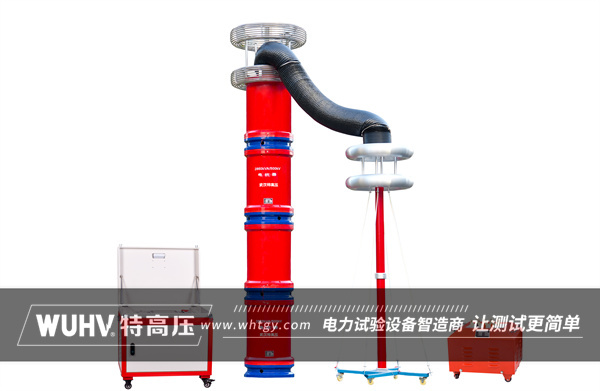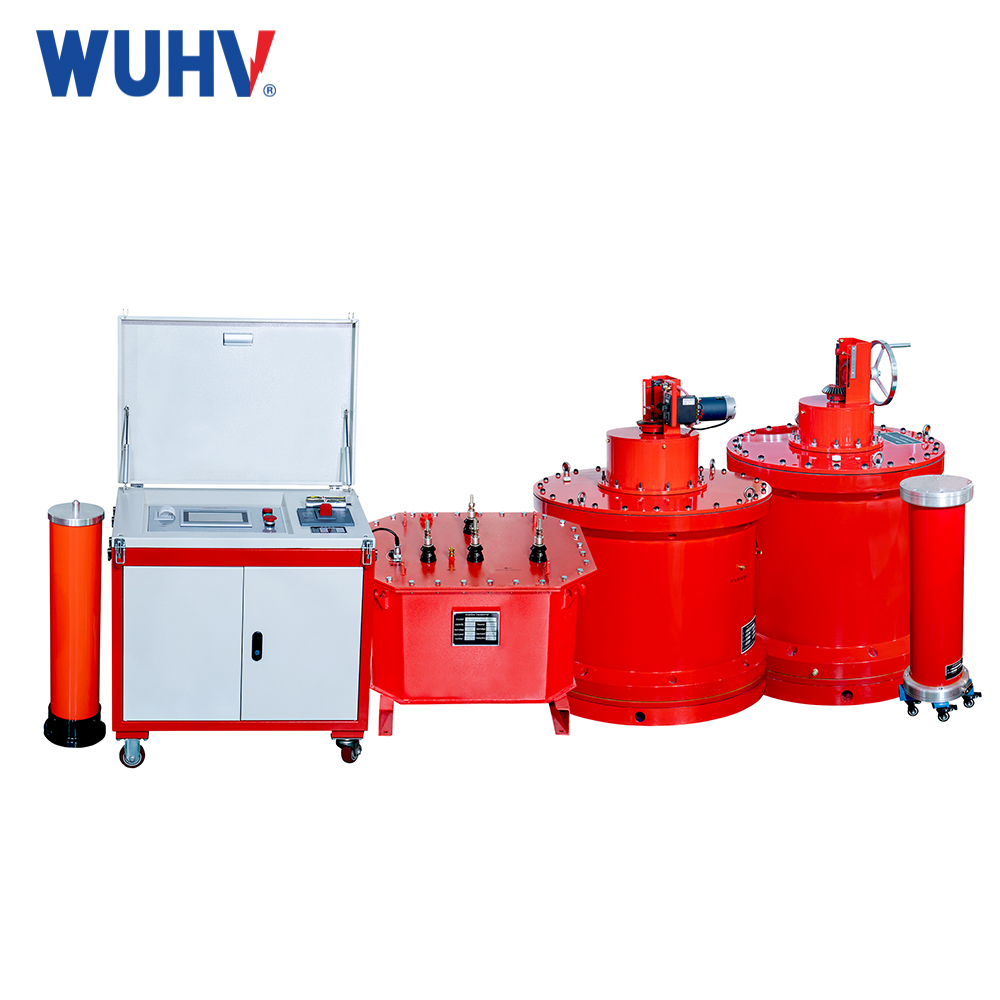The series resonance under Wuhan UHV can help many power workers conduct various power tests more conveniently.

DC withstand voltage test is a destructive test used to test the insulation performance of electrical equipment. The following is a detailed explanation about the DC withstand voltage test:
definition
The DC withstand voltage test is conducted by applying a high DC voltage to electrical equipment to test the insulation strength and withstand capacity of the equipment under the action of a high voltage electric field. This type of test belongs to destructive testing, as it can cause a certain degree of damage to the equipment during the testing process.
objective
Determine the maximum peak voltage: Through the DC withstand voltage test, the maximum peak voltage that the equipment can withstand under high voltage testing can be detected, providing a basis for determining the range of use of the equipment and selecting the range of the equipment.
Discovering insulation defects: DC withstand voltage testing can effectively detect overall insulation defects such as moisture and dirt, as well as local insulation defects through the relationship curve between current and leakage current.
characteristic
Low destructive power: Due to the fact that insulation does not produce dielectric loss under DC voltage, the destructive power of DC withstand voltage on insulation is relatively small.
Small capacity of testing equipment: Due to the low leakage current required for DC withstand voltage, the required testing equipment has a small capacity and is easy to carry.
Discovering local defects is more effective: DC withstand voltage testing has special significance in detecting certain local defects, such as cracks in porcelain insulation, internal moisture in interlayer insulation, and local loose fractures.
Operation steps
Preparation stage: Check whether the instruments, discharge rods, voltage doubler tubes, test sample connection wires, grounding wires, etc. are correct, ensure that the grounding wire connection is reliable, and check whether the high-voltage safety distance meets the requirements.
Step up phase: After connecting the power supply, start boosting. The recommended boost speed is usually 3-5 kV per second to increase the test voltage. For large capacitance test samples, the voltage should be boosted slowly to avoid voltage overshoot, and the charging current of the ammeter should be monitored to not exceed the maximum charging current of the DC generator.
Record data: After reaching the required voltage or current, record the readings of the ammeter and voltmeter according to the specified time.
Voltage reduction and discharge: After the test is completed, first reduce the voltage, then cut off the high voltage and turn off the power switch. Use a discharge rod to discharge the test sample multiple times to ensure safety.
matters needing attention
Safe operation: During the testing process, it is necessary to follow the safety operation procedures to ensure the safety of personnel and equipment.
Equipment selection: Choose a suitable DC high-voltage generator and ensure its stable and reliable performance.
Environmental conditions: Pay attention to the temperature and humidity conditions of the test environment to avoid affecting the test results.
summary
DC withstand voltage test is an important electrical testing method that tests the insulation performance and withstand voltage capability of equipment by applying DC high voltage. It has the characteristics of low destructiveness, small capacity of testing equipment, and more effective detection of local defects. When conducting a DC withstand voltage test, it is necessary to follow the correct operating steps and precautions to ensure the accuracy and reliability of the test results.



















